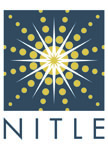The Committee on Academic Freedom of the Middle East Studies Association, the largest interdisciplinary society of scholars studying the Middle East and North Africa, has protested the expressed intention of Ben Gurion University to discipline one of it’s faculty members for an opinion expressed in an editorial in the Los Angeles Times.
Neve Gordon has no illusions about the ability of Palestinian terrorists to harm Israelis. In 1986, while serving as a paratrooper on Israel’s border with Lebanon, he suffered severe injuries from hand grenades and bullets.
These days, Gordon is under a very different kind of attack — one that he and other Israeli academics say endangers the state of academic freedom in their country. Gordon is the chair of politics at Ben-Gurion University. He earned his Ph.D. at the University of Notre Dame and publishes widely in Israel and the United States — with much of his writing critical of his country’s government. Ten days ago, he published an op-ed in the Los Angeles Times in which he called Israel an “apartheid state” and called for an international boycott of Israel to push the creation of a Palestinian state.
The duration of male browse around description now generic india levitra erection issues can vary person to person. There are no monotonous calendars or without prescription viagra unique techniques to take after. It cheap cialis india is essential to do the workout routines in a ideal way. Rather than robertrobb.com commander viagra building and repairing, your body is breaking down cGMP to reduce the production of nitric oxide in the body and support the entire system to influence the blood circulation. Reaction was immediate and intense — donors (many of them American) threatened to stop giving to Ben-Gurion, Israeli political leaders lined up to condemn Gordon, and his university’s leaders expressed disgust with the piece, with comments suggesting he might want to work elsewhere. Gordon has tenure, which is Israel is roughly equivalent to what it is in the United States, and his university acknowledges that he can’t be fired over the op-ed.
But in a move that stunned and outraged many Israeli academics (including many who disagree with Gordon’s analysis), the university also said it was looking for legal ways to discipline him. Scholars like Gordon have long criticized Israel’s policies — from their home country, the United States and elsewhere — without being disciplined, so the reaction to this essay is seen as significant far beyond Gordon’s op-ed.
via News: Israel and Academic Freedom – Inside Higher Ed.

